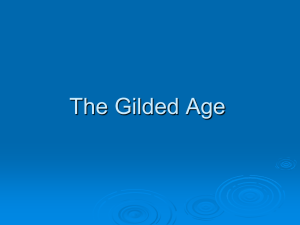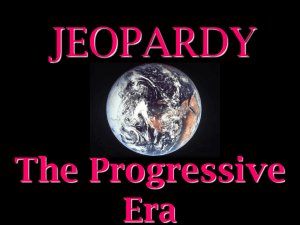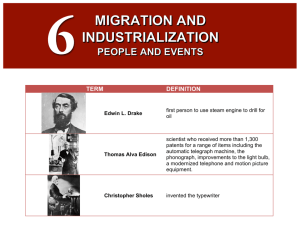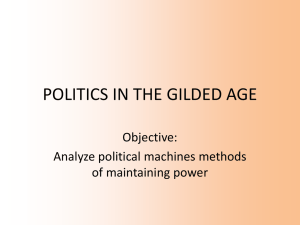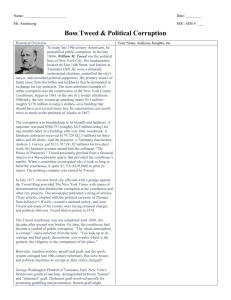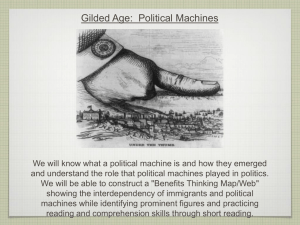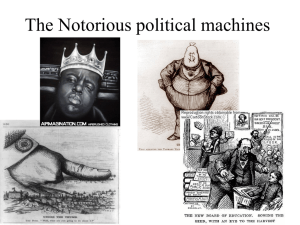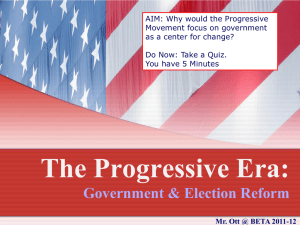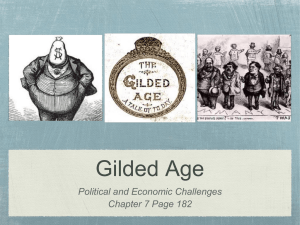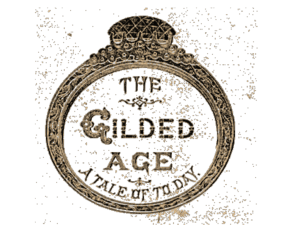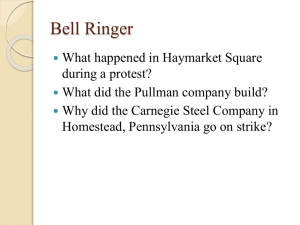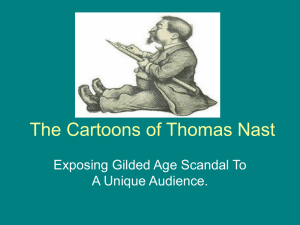Chap 7, Sect 3 Politics in the Gilded Age
advertisement
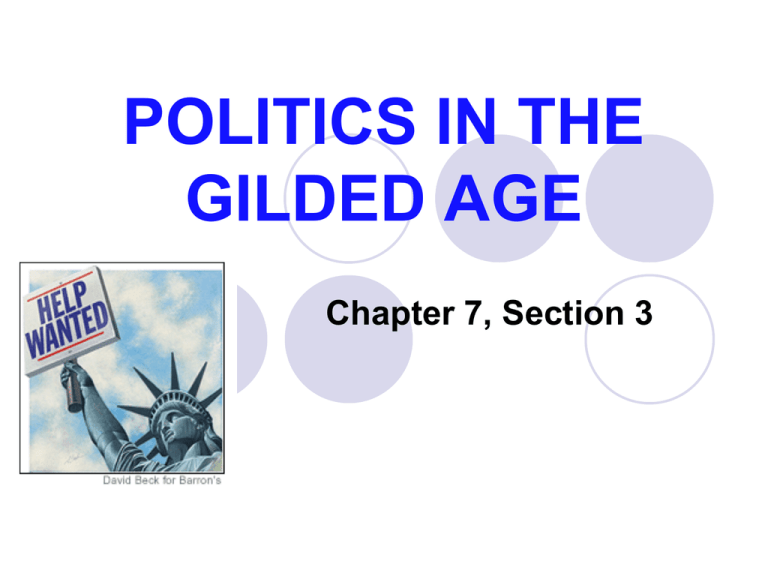
POLITICS IN THE GILDED AGE Chapter 7, Section 3 SECTION 3: POLITICS IN THE GILDED AGE As cities grew in the late 19th century, so did political machines Political machines controlled the activities of a political party in a city Ward bosses, precinct captains, and the city boss worked to ensure their candidate was elected ROLE OF THE POLITICAL BOSS The “Boss” (typically the mayor) controlled jobs, business licenses, and influenced the court system Precinct captains and ward bosses were often 1st or 2nd generation immigrants so they helped immigrants with naturalization, jobs, and housing in exchange for votes Boss Tweed ran NYC MUNICIPAL GRAFT AND SCANDAL Some political bosses were corrupt Some political machines used fake names and voted multiple times to ensure victory (“Vote early and often”) – called Election fraud Graft (bribes) was common among political bosses Construction contracts often resulted in “kickbacks” The fact that police forces were hired by the boss prevented close scrutiny THE TWEED RING SCANDAL William M. Tweed, known as Boss Tweed, became head of Tammany Hall, NYC’s powerful Democratic political machines Between 1869-1871, Tweed led the Tweed Ring, a group of corrupt politicians, in defrauding the city Tweed was indicted on 120 counts of fraud and extortion Tweed was sentenced to 12 years in jail – released after one, arrested again, and escaped to Spain Boss Tweed CIVIL SERVICE REPLACES PATRONAGE Applicants for federal jobs are required to take a Civil Service Exam Nationally, some politicians pushed for reform in the hiring system The system had been based on Patronage; giving jobs and favors to those who helped a candidate get elected Reformers pushed for an adoption of a merit system of hiring the most qualified for jobs The Pendleton Civil Service Act of 1883 authorized a bipartisan commission to make appointments for federal jobs based on performance BUSINESS BUYS INFLUENCE With employees no long a source of campaigning contributions, politicians turned to wealthy business owners. The alliance between government and big business became stronger than ever. Partner Question, Chapter 7, Section 3 Reread the quotation from James Pendergast on page 268. Explain whether you agree or disagree that machine politicians did not coerce people. How were politicians like Boss Tweed similar to industrial magnates like Carnegie and Rockefeller? POLITICS IN THE GILDED AGE Chapter 7, Section 3
